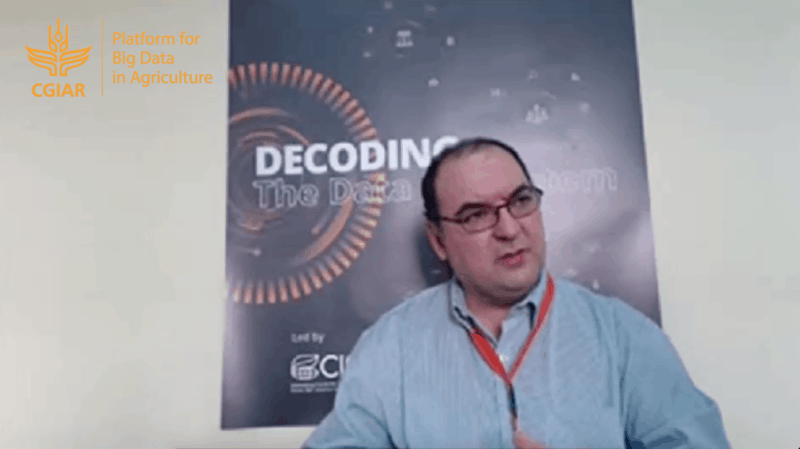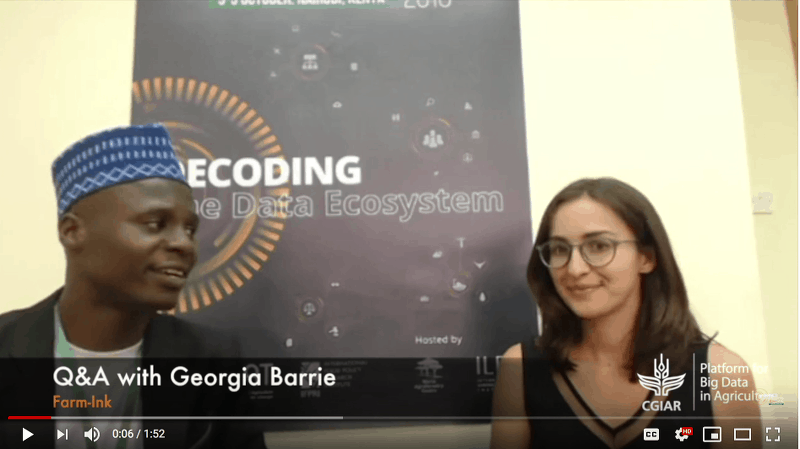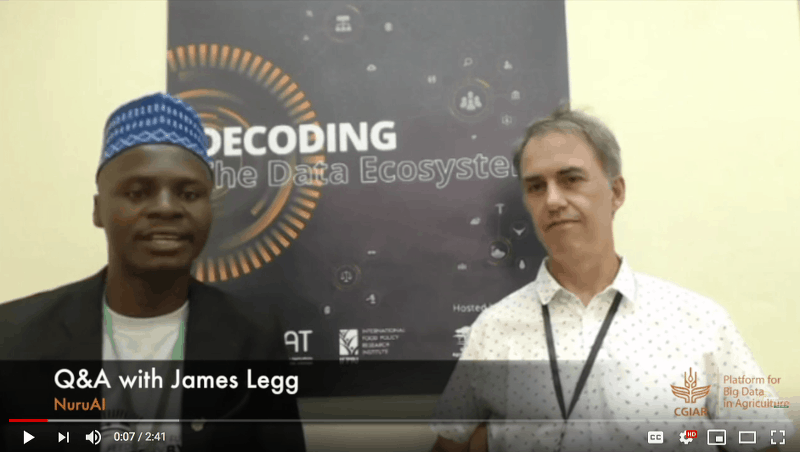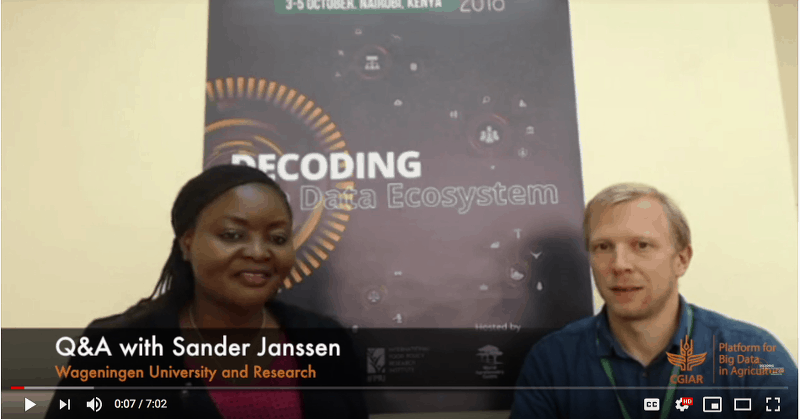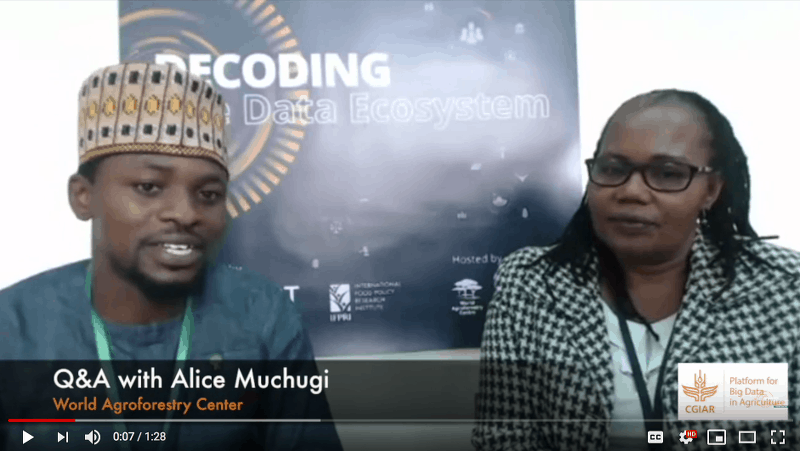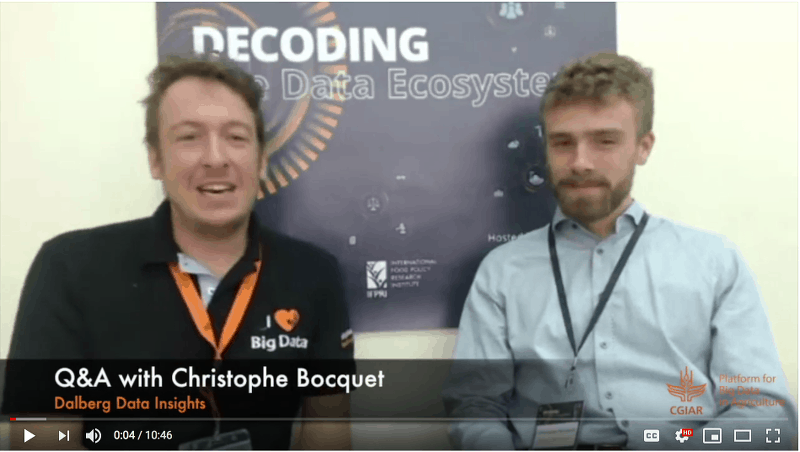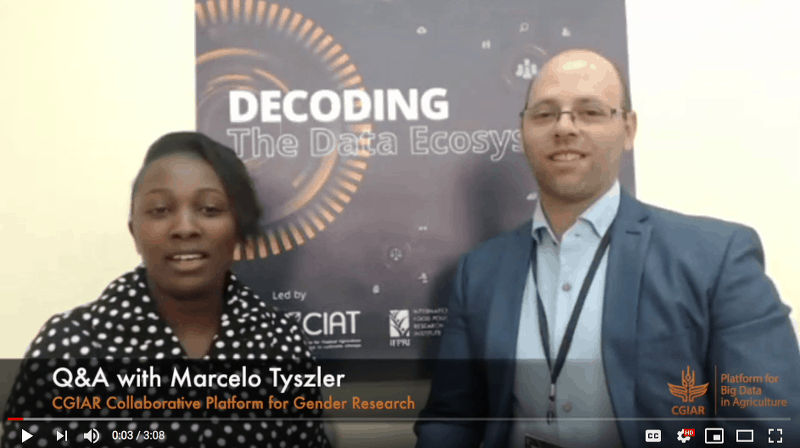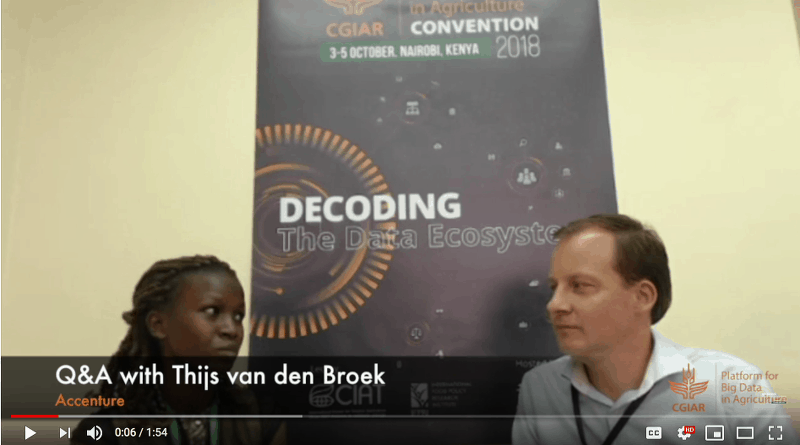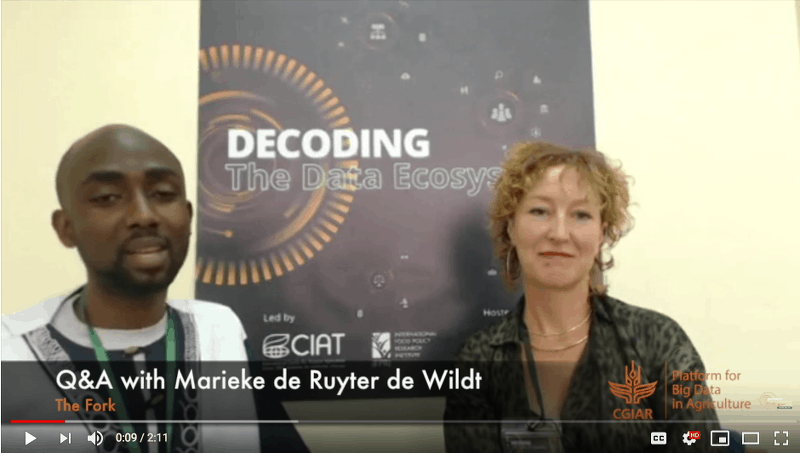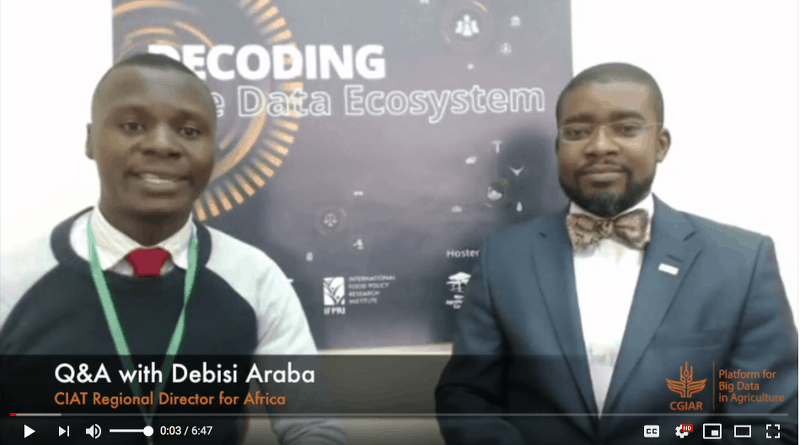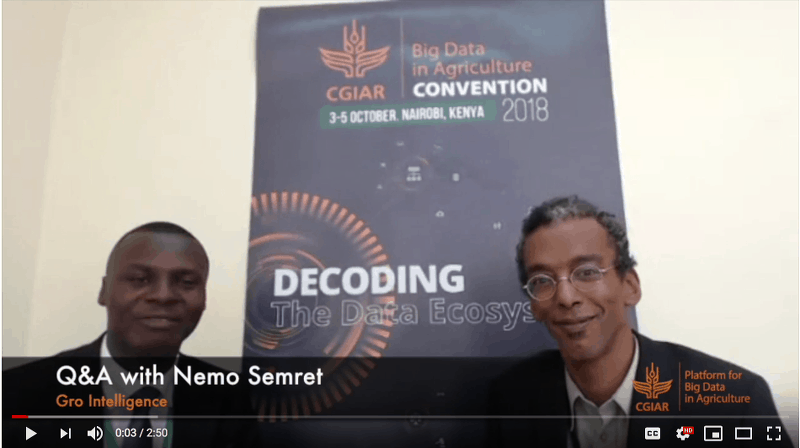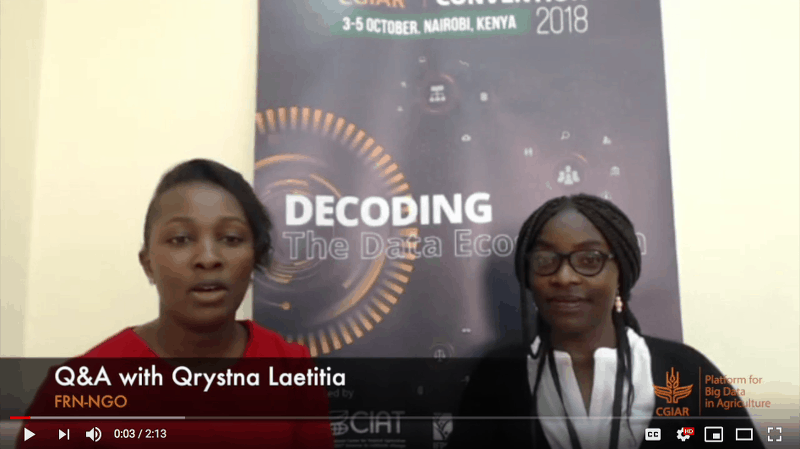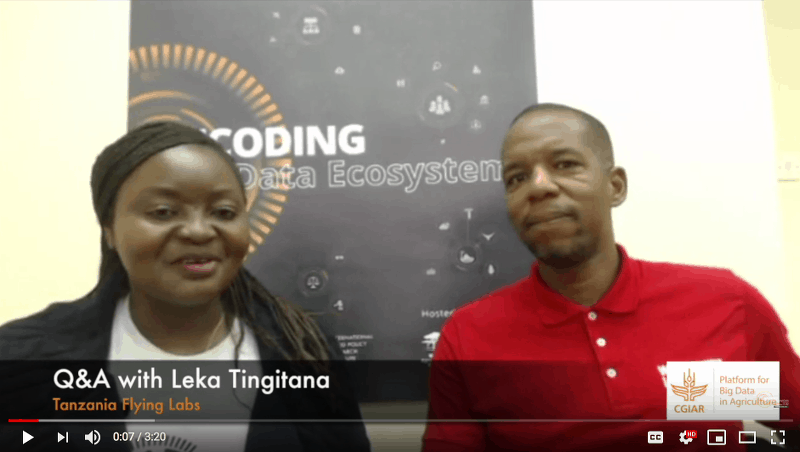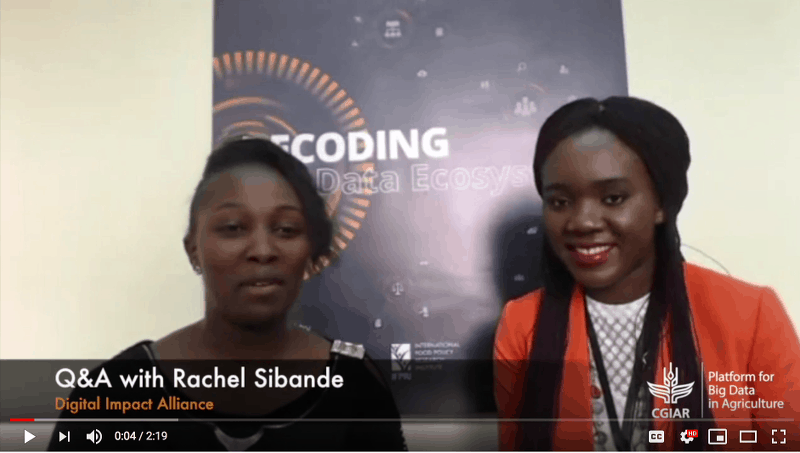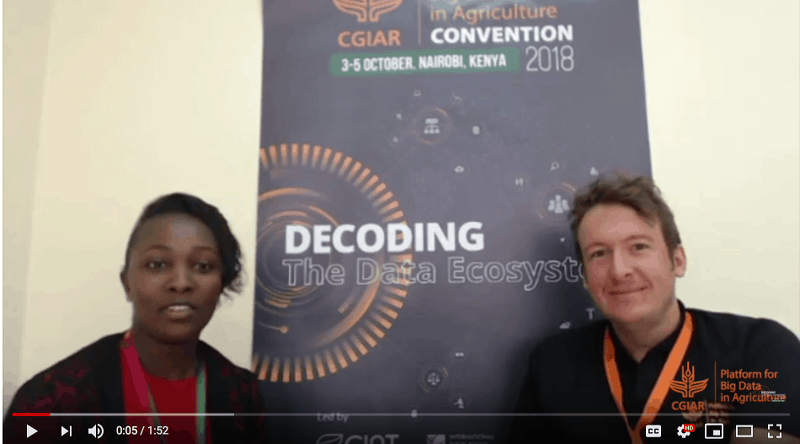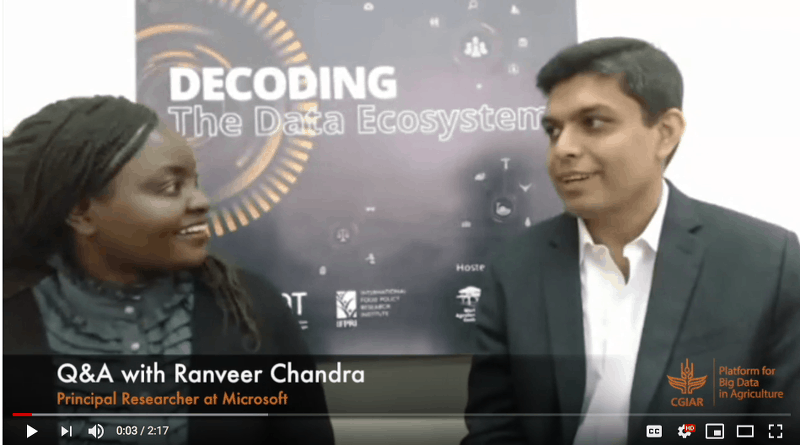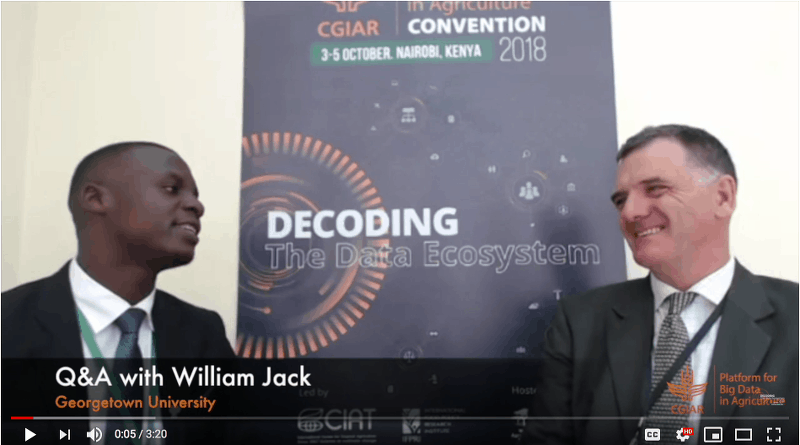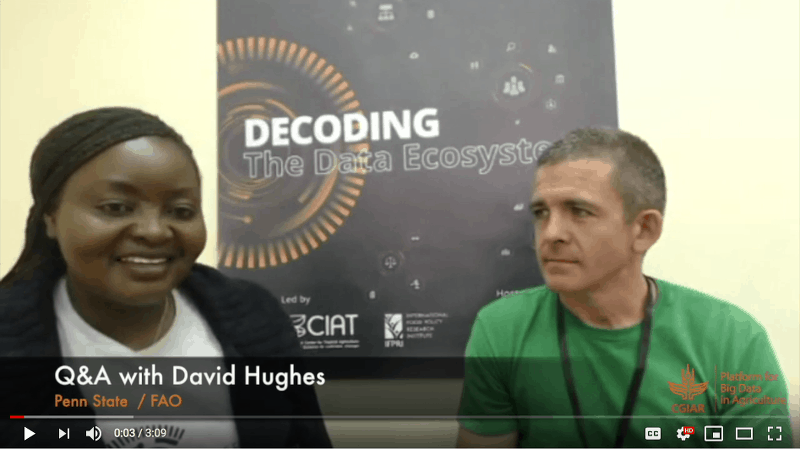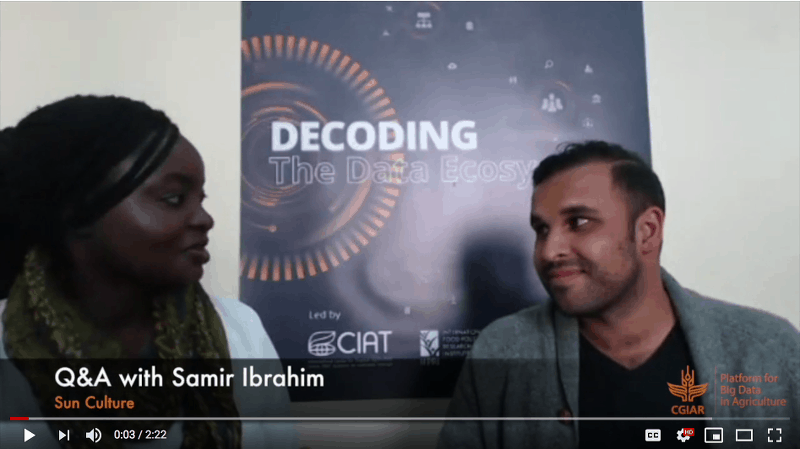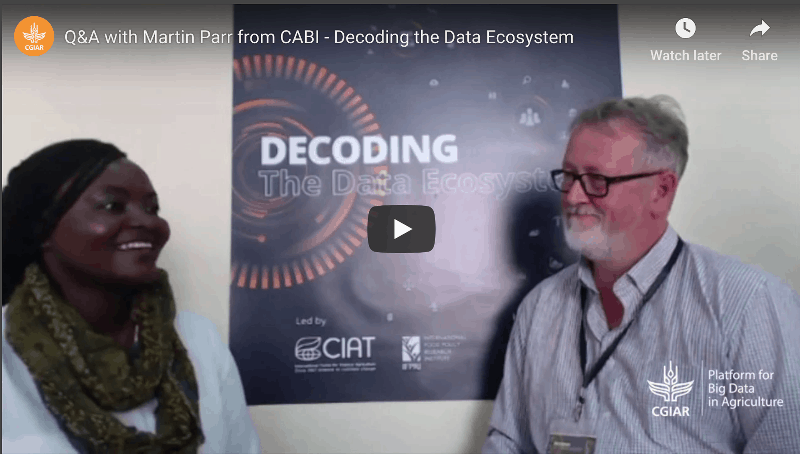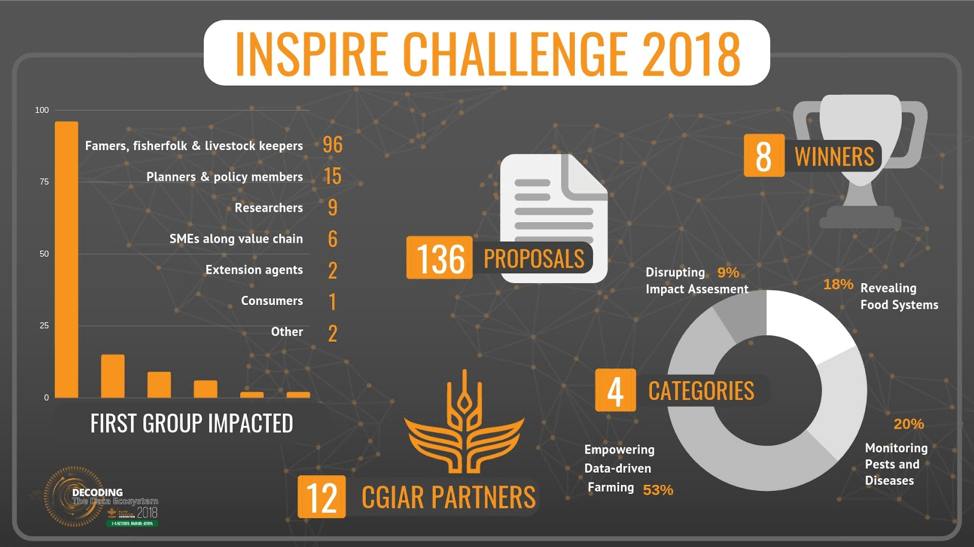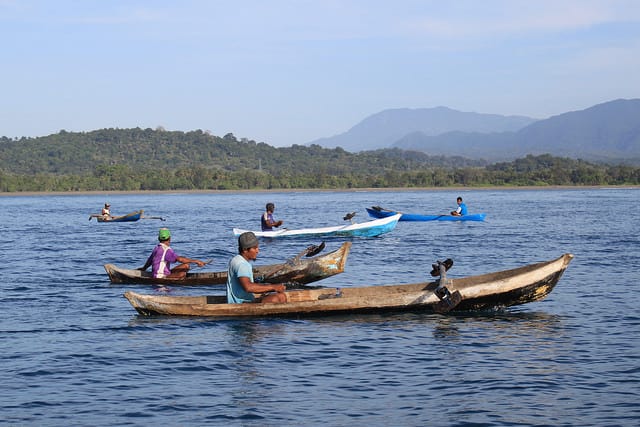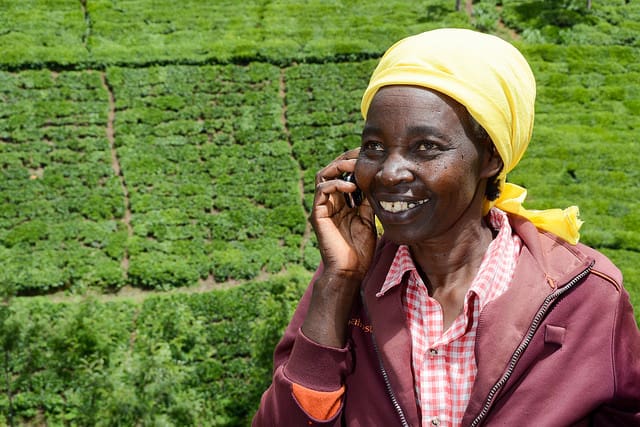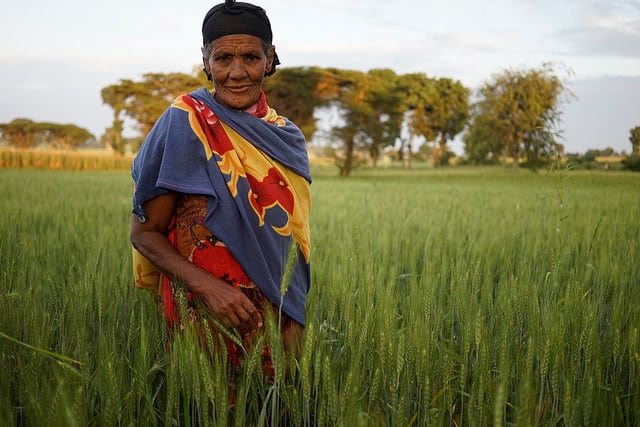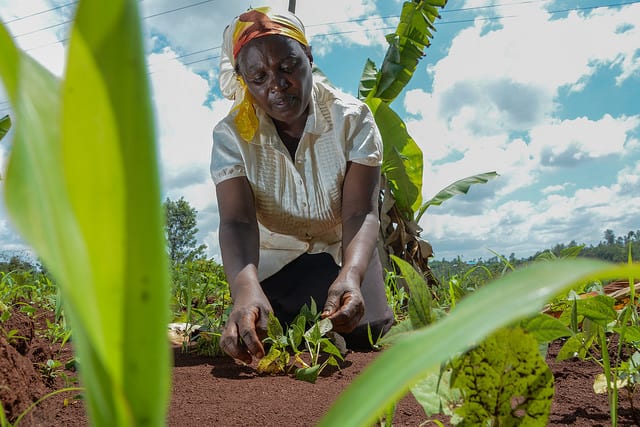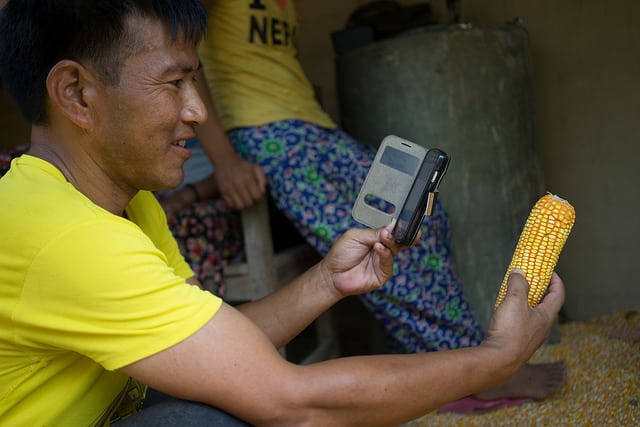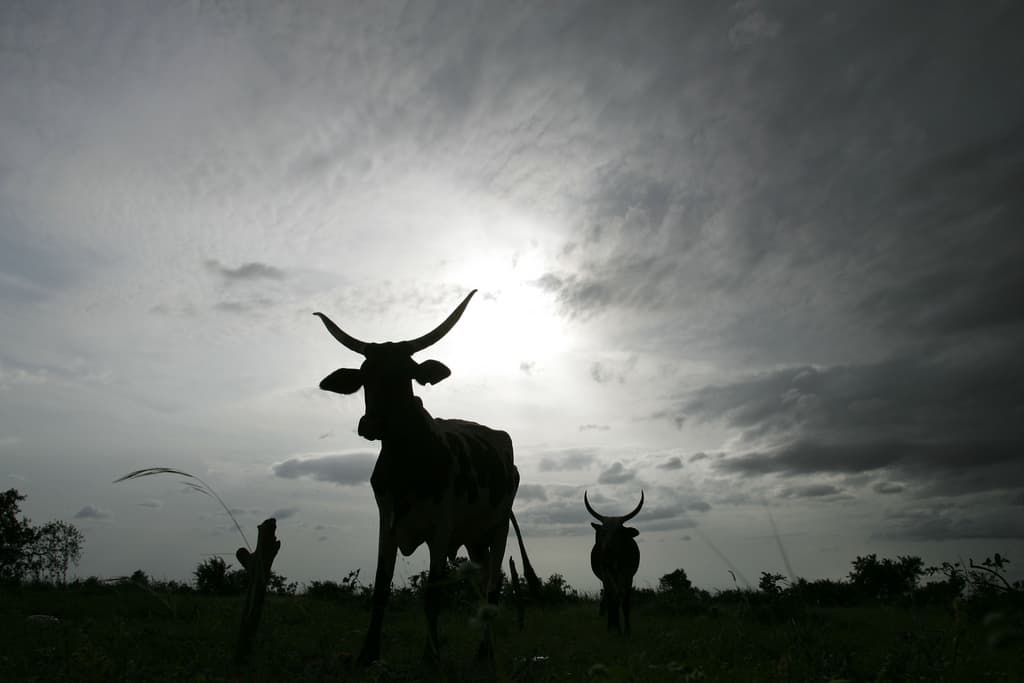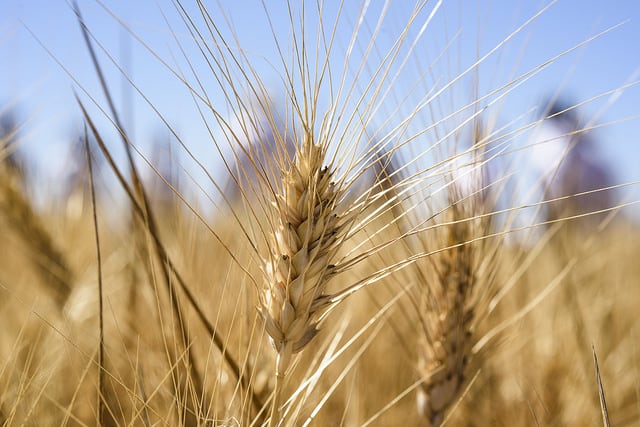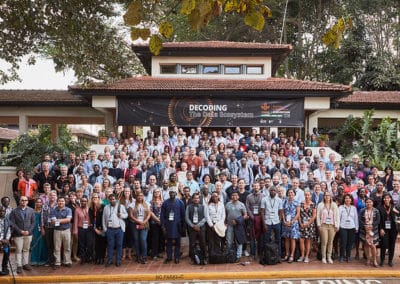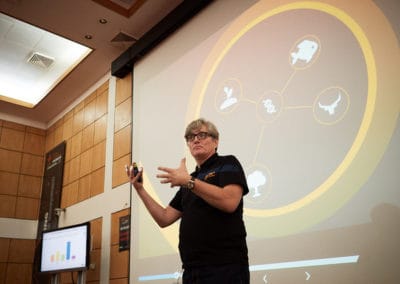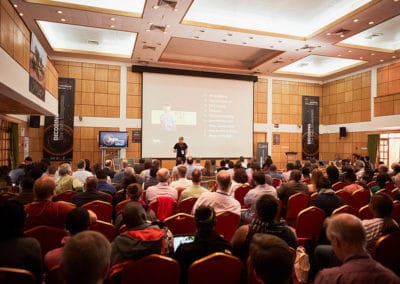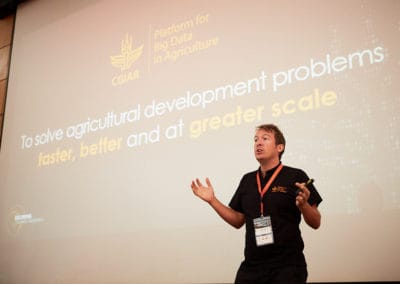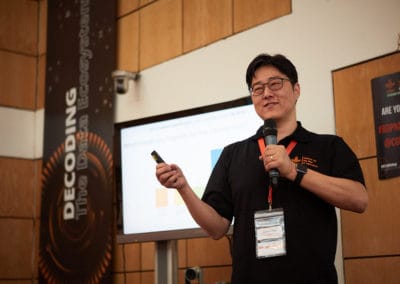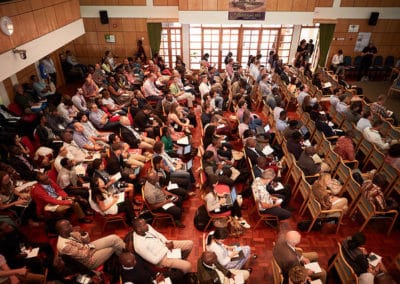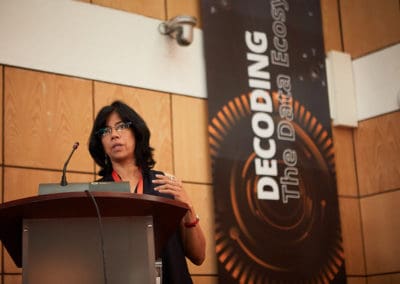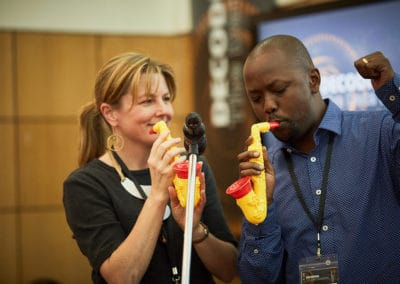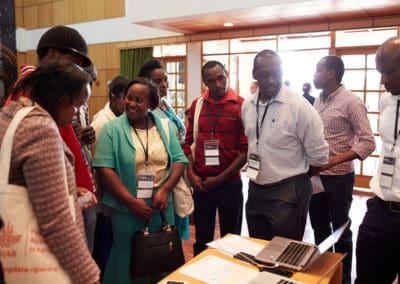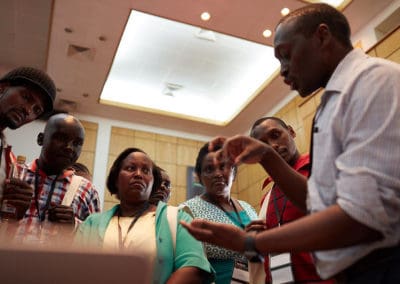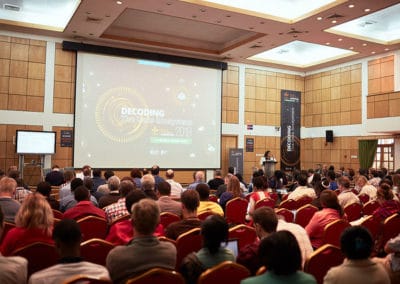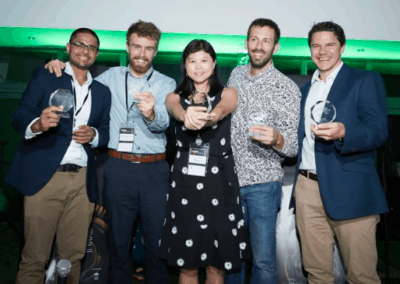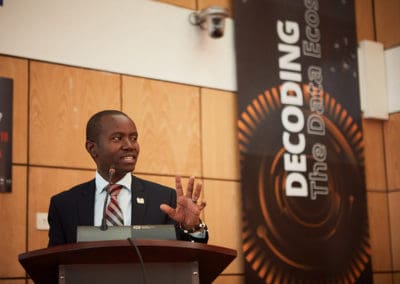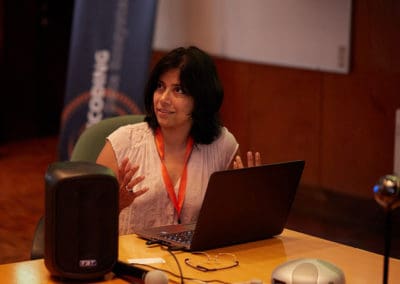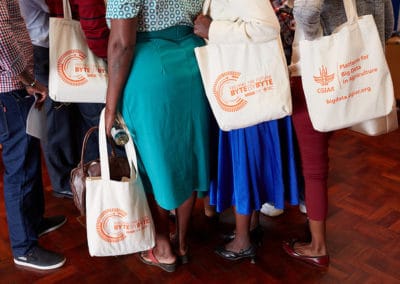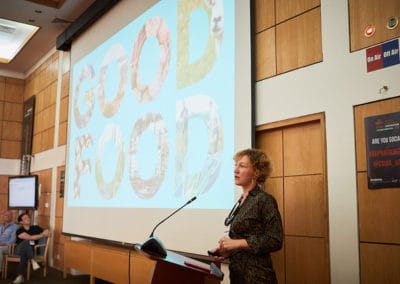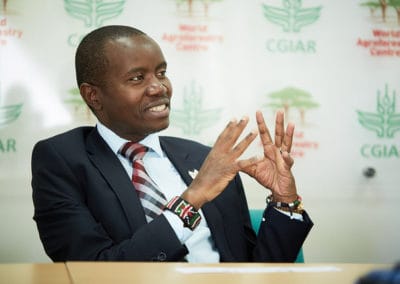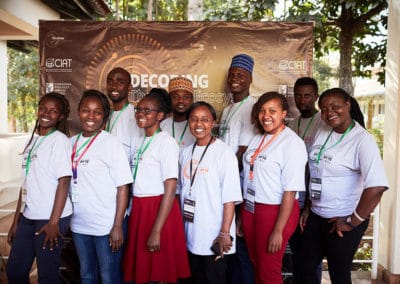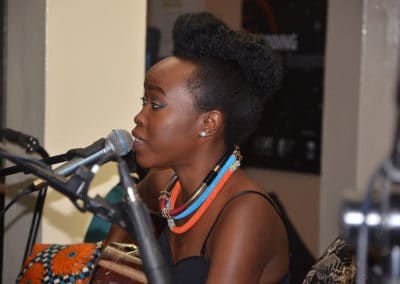
Convention Highlights
The #BDPNAIROBI2018 convention was both inspiring and informative. We had over 400 attendees and 150 of those were speakers in some form or another – a clear sign of just how much people want to personally engage and join in the conversation about building an effective and sustainable data ecosystem. Thank you to everyone who participated and engaged, in person and online.
Here are the highlights from the 2018 CGIAR Platform for Big Data in Agriculture Convention: Decoding the Data Ecosystem.
attendees

speakers
Total reach
#BDPNAIROBI2018
Take away messages
To solve a complex problem, you need to have the whole system in the room.
Finding the right mix of data, actors, analysis and action to build resilient food systems is certainly a complex problem. I think we learned a few things together about how to address it.
New digital business models are emerging everywhere.
Financial technologies, pay-as-you-go, and connected ‘Internet of things’ networks are all demonstrating ways of doing business that could be leveraged for linking research to impact. Look to other actors in the food system for new models.
The food systems framework–and the actors in the system–help link data to impact.
The team interviewed some 50 food system actors about their data and information practices, with an eye towards leveraging the Convention as an opportunity to converge food security research and concrete actions in the system.
Data ontologies unlock new capabilities.
Linking data to impact requires fluid, dynamic ability to converge and query data across domains, locations, and timescales related to questions we have today and questions we may have in the future. Ontologies are the most fundamental–and most under-appreciated–aspect of building this research data revolution.
Building new digital impact from research must be guided by innovation strategy.
CGIAR’s digital innovation process, the Inspire Challenge, is getting better at targeting innovation. In 2017, only about 8% of submissions targeted smallholder farmers. In 2018 it was over 70%. If we aim to solve agricultural problems faster and at greater scale, we need to measure our progress and change tack as necessary. Generating new ideas is important, and so is finding the ways innovations can take up a place in the larger data ecosystem for food security.
Digital transformation is a movement.
From the executive level to researcher level; between non-profit, public and private; we all must own the process of digital transformations for food security.
Using #BDPNAIROBI2018 we reached 2 million accounts in the first day and stayed in the top trending topics in the following days.
All set for the #BigData in #Agriculture Conference in #Nairobi
— Mr. Climate (@OlumideIDOWU) October 3, 2018
Opening Session! #BDPNairobi2018 #BigData @Marianne_McDade @ICRAF @CWatsonICRAF @BudgITng @budgitco pic.twitter.com/KvG0Fxsvg1
#BDPNAIROBI2018 imagine if a farmer could ask google, siri or Alexa a question and get relevant answers. #BigDataInAg is taking steps towards this. pic.twitter.com/wfdmBbKgB2
— Leroy Mwanzia (@LMwanzia) October 3, 2018
#Quote: We have so much data, indeed an ocean of big data that we want to swim in but we do not want to drown in it - Dr. Jim Ostell @NCBI @medha_devare @CGIAR_Data #BDPNAIROBI2018 #BigData #bigdatainag pic.twitter.com/hUjMrqRUqZ
— John Agboola O (@johnagboolao1) October 3, 2018
The moment @CGIAR_Data announced the #YouthInData, the first of its kind. Indeed, we set the convention on 💥💥with #BDPNairobi2018. How best can you describe #Youth in 4 words? Mine:-
— John Agboola O (@johnagboolao1) October 6, 2018
1. Energetic
2. Smart
3. Data driven
4. Goal getter.
Thanks to @Marianne_McDade for this. pic.twitter.com/zLnxpBl3EX
#BDPNAIROBI2018 Increase in access to M-PESA helped move households out of extreme poverty. - William Jack of Georgetown University. pic.twitter.com/3W3I93gBHb
— Leroy Mwanzia (@LMwanzia) October 3, 2018
BigData needs to work for smallholder farmers in developing countries & not just the commercial farms of the North. This is more true for Africa than anywhere else. This is a call to action for all of our promising young 'techies' in Africa @IITA_CGIAR @AfDB_Group #BDPNAIROBI2018 pic.twitter.com/HbDDpvm3d6
— James Legg (@jamesplegg) October 3, 2018
WATCH:
Interviews led by the Youth in Data delegates during the Convention
The Inspire Challenge 2018
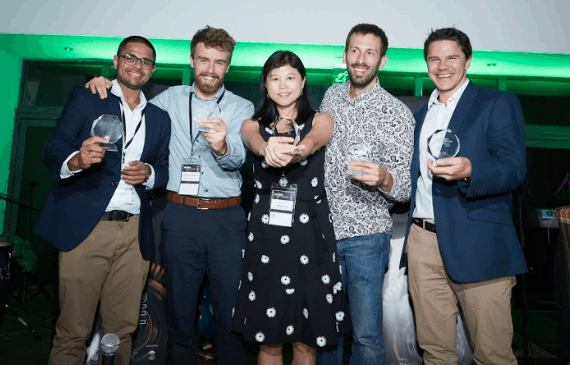
In addition, the Platform awarded US$500,000 in total to three of the five winners from the 2017 challenge to help them expand the scale of their innovation. They had 12 months to implement their pilots and had to demonstrate the proven viability and potential for impact and present their results in front of a panel of judges to compete for the Scale-Up grant.


